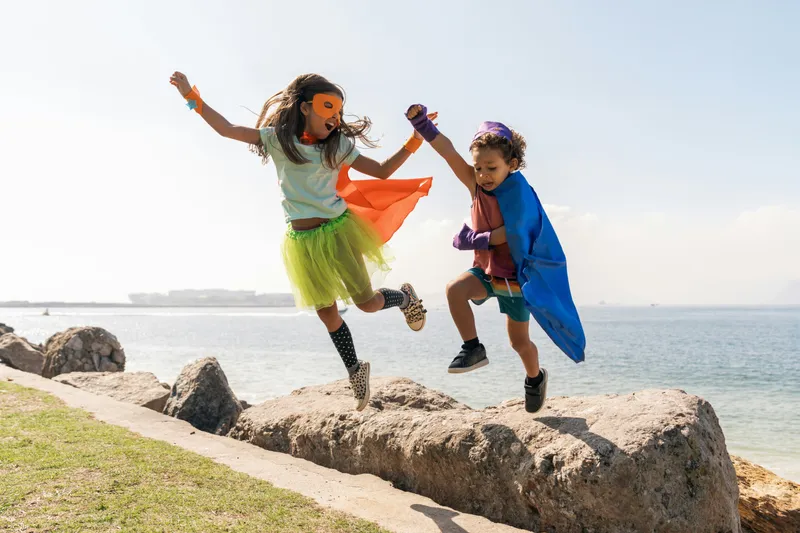No To Perfection Yes To Planet


Excel at school, and later, at work. In decades past, this mantra promised stability: perfect grades, perfect manners, perfect futures.
Today, many parents are choosing a radically different approach – one that prioritizes resilience, creativity, and ecological consciousness over flawless performance. This shift is not about letting children “do whatever they want.” It is a deliberate response to the demands of a rapidly changing world. Parents increasingly understand that preparing children for the future is less about creating a perfect résumé and more about nurturing adaptive, empathetic, and environmentally aware human beings.
In homes across Europe, North America, and increasingly in urban centres worldwide, caregivers are questioning the old scripts. They are letting children make mistakes, encouraging experimentation, and reframing failure as learning rather than shame. The message is simple: you do not have to please everyone, and it is okay to disappoint others.
Dr. Claudia Buddeberg-Fischer, a professor of child and adolescent psychiatry at the University of Basel, explains:
“Resilience and creativity cannot flourish in a world where everything must be perfect. Children need space to explore, to fail, and to recover. Only then do they internalize problem-solving, adaptability, and emotional intelligence.”
Allowing imperfection also opens a window for ecological awareness. Parents are teaching children that life itself is inherently messy: ecosystems are dynamic, communities face setbacks, and solutions require iteration, patience, and collaboration. By linking personal growth to planetary stewardship, parents reinforce the idea that mistakes are opportunities, not endpoints.
Curiosity is now a key metric of successful parenting. Encouraging children to ask questions, challenge assumptions, and experiment with solutions teaches them to navigate complexity. This approach contrasts sharply with traditional models of schooling, which reward rote memorization and compliance.
Real-world examples abound. In the UK, Forest Schools, which allow children to spend most of their school day outdoors exploring and problem-solving in natural settings, have demonstrated improved confidence and environmental awareness.
Imperfect parenting is not just about tolerance of mistakes; it is also about fostering deep connection. Parents are focusing on empathy, emotional intelligence, and shared responsibility for community and environment. Simple practices, from gardening together to participating in local clean-ups, demonstrate that personal actions ripple outward.
Carla Mendez, a parent in Barcelona, shares her approach:
“We encourage our children to question our habits. If they ask why we compost, we explain. If they suggest a better way, we try it. This way, they learn that engagement, reflection, and responsibility matter more than perfection.”
In Switzerland, families participating in Pro Juventute’s Eco-Kids programs experience weekly activities that combine reflection, environmental projects, and group problem-solving. Children are encouraged to experiment with low-impact solutions for real-world challenges, internalizing responsibility through practice rather than instruction.
The connection between imperfect parenting and planetary consciousness is deliberate. Experts argue that a child who learns to accept failure and ambiguity is more likely to engage with systemic challenges – from climate change to biodiversity loss – with flexibility and creativity.
Parents are incorporating sustainability into everyday life: choosing durable over disposable, celebrating repair over replacement, and experimenting with low-impact habits. Each small lesson reinforces that resilience – whether personal or ecological – comes from adaptation, not flawless execution.
How does this look in practice? Families may set aside a weekly “failure hour,” where children can reflect on mistakes and experiment with solutions. Schools are introducing open-ended projects, emphasizing inquiry over grades. Technology and creativity are also harnessed to reduce fear of failure: coding challenges, art projects, and ecological experiments reward process and learning rather than final outcomes.
Another critical strategy is dialogue. Conversations about environmental responsibility, ethical consumption, and the limits of perfection help children integrate personal growth with planetary awareness. The result is a generation that can think critically, act compassionately, and innovate responsibly.
Rejecting perfection is not a concession; it is a strategy. It acknowledges that the world is complex, dynamic, and often unpredictable. By raising children who embrace imperfection, parents equip them with the tools to navigate uncertainty, build resilience, and engage meaningfully with social and ecological systems.
No longer is success defined solely by grades, manners, or accolades. Success now includes curiosity, adaptability, empathy, and a commitment to a world beyond oneself. Imperfect children, raised consciously, are poised to become adults capable of confronting the challenges of the 21st century with intelligence, creativity, and care – for each other and for the planet.
The mantra for the next generation might read:
“No to perfection, yes to planet.”